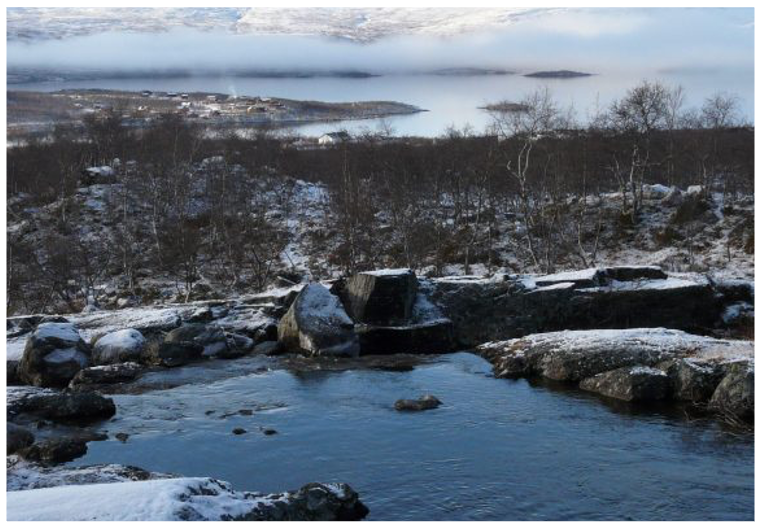Kilpisjärvi Biological Station

Kilpisjärvi Biological Station, FI
The research station belongs to the University of Helsinki, Faculty of Biological and Environmental Sciences.
Kilpisjärvi Biological Station is a modern Arctic-Alpine research station. The station and its surrounding habitats (alpine heathlands, mountain birch forests, waterbodies, etc.) are easily accessible. Many of its long-term monitoring data sets cover 40-50 years and form important background information for environmental change studies and short-term ecological studies. Extensive data on climate, land use, geology, fauna and vegetation are available. Research activities at the station range from animal and botanical ecology to hydrobiological, paleolimnological and climate research. Kilpisjärvi Biological Station offers varied infrastructure in unique settings for diverse research and educational activities throughout the year.
Contribution to POLARIN key research challenges: 3, 4, 5, 6, 7
Contact: Research coordinator Anu Ruohomaki, anu.ruohomaki[at]helsinki.fi
Website
https://www.helsinki.fi/en/research-stations/kilpisjarvi-biological-station
https://www.interact-gis.org/Home/Station/19
Location
Kilpisjärvi Biological Station is situated in the community of Enontekiö, Kilpisjärvi village in the northwestern part of Finnish Lapland (69°03’ N, 20°50’ E). The station lies between Saana Fell, 1,029 meters above sea level, and Lake Kilpisjärvi, near the Käsivarsi Wilderness Area and close to Sweden and Norway.
Facilities
Kilpisjärvi Biological Station is easily accessible and equipped to accommodate a diverse range of users. It offers accommodation for around 60 guests with meals provided year-round from the station’s eatery. Facilities features two lecture halls with capacities for 40 and 60 people, the larger of which also serves as a dining room, as well as workspaces, a library, guest kitchens, saunas, and five laboratories.
The laboratories are designed for field research, featuring equipment such as refrigerators, freezers, an ultra-low temperature chest freezer, a dry ice machine, ovens, micro- and macro-scales, microscopes, a centrifuge, an autoclave, and various meters (pH, conductivity, thermometers, and Quantum/Radiometer/Photometers). A range of field equipment is also available, including boats and a snowmobile. WLAN access is provided throughout the station.
These facilities enable the hosting of international workshops and conferences. The station’s permanent staff consists of six members, and it serves as a collaborative space for art and science, hosting an artist residency program run by the Bioart Society. Kilpisjärvi Biological Station is conveniently located, with public transport options and two airports—Kittilä and Tromsø in Norway—within a three-hour drive.
Services offered
Accommodation and meals are provided at the station year-round. Technical support is available both in the field and in the laboratory. The station also offers local expertise and assistance with research setups, sampling and permit processes, ensuring that researchers have the necessary support for their projects.
What is included in the Access
Unit of access: User/day
Modalities of access offered: In-person access, remote access
The access to Kilpisjärvi Biological Sation includes accommodation, three meals a day, 10 hours of advisory support per group, and access to laboratory facilities. Transportation can be arranged upon request, subject to availability. Fieldwork typically lasts from 1 to 4 weeks, and the station is designed to enable researchers to work as independently as possible. Staff are available on-site during weekdays to provide assistance as needed.
Availability for Access
See the table in the dedicated Transnational Access call page.
Time frame for access preparations
Kilpisjärvi Biological Station encourages researchers to reach out early, particularly for bookings during the peak season from June to September, concerning both accommodation and field services. While the time frame for arrangements depends on the scale of the project and the specific season, it is advisable to give at least 2-3 months’ notice for the summer season.
Permits, licenses and training
Most permits required for field research are obtained from Metsähallitus, the Finnish authority that manages state-owned lands, which encompass much of the Kilpisjärvi area. The research station holds a license for experimental animal activities, but a separate permit must be secured for each specific project. Additionally, permits from ELY, the Centre for Economic Development, Transport and the Environment, are necessary for activities that may disturb protected species or involve research fishing.
It’s important to note that the primary investigator is responsible for applying for the necessary permits, although the station can provide assistance throughout the process.
Medical guidelines
No medical examinations or health checks are required for users at the station. Kilpisjärvi village has a health station with a nurse and a visiting doctor, open a couple of days a week. The nearest hospitals are located in Rovaniemi and Tromsø.